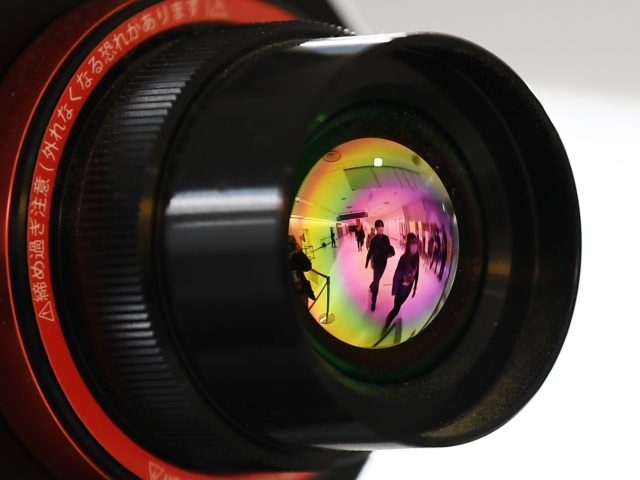Japan’s digital transformation minister, Hirai Takuya, announced in an interview Sunday that Tokyo is developing a “monitoring system” to keep close surveillance on foreigners visiting the country, allegedly to contain the spread of the Chinese coronavirus.
Hirai, whose job is to oversee the update of all government technology systems, reportedly noted that the government of Prime Minister Suga Yoshihide is hoping to complete the development of the system by the 2021 Summer Olympics, scheduled to take place in Tokyo, to allow tourists to attend the event. Hirai did not provide any details on the project.
Japan’s Kyodo News noted that Hirai made the remarks during an interview on Japan’s Fuji TV and that he said that he would personally want the government to make it mandatory for any foreigners in Japan to use the system to allow the government to monitor their movements.
Japan has some history of using technology to monitor individuals. In 2016, QR code stickers – square signs that transfer data to cellular phones – became popular among local officials seeking to help nursing homes and families with elderly members keep track of people with dementia. Placing a QR code sticker on the person allows someone who finds them to immediately know who they are and where they belong, which helps with dementia patients who develop a proclivity for going missing.
Tracking technology to monitor citizens, allegedly to contain the pandemic, is already in use in several countries – most prominently in the origin country of the virus, China, where the coronavirus tracking app is merely the newest in a series of Communist Party mobile applications that Beijing coerces citizens to use. The Chinese Communist Party debuted over 100 mobile phone apps in 2017 designed to track citizens’ loyalty to the Party.
Other, less repressive nations such as Australia and Italy have implemented contract-tracing apps. Some left-leaning American states have also tried to implement similar applications but have widely failed.
Japan has documented 223,786 cases of Chinese coronavirus at press time. Among those confirmed to have the virus, 3,152 people have died. Urgency to contain the virus has increased in the past month, however, as the rate of infection has accelerated. Last week, Japan hit its record-high number of cases in one day four times, culminating with 3,883 coronavirus cases confirmed on Saturday. The situation has intensified in Tokyo, where Saturday was the 12th consecutive day recording a daily high count of cases.
In response, Japan banned non-resident foreigners from entering the country, beginning on Monday.
Tokyo officially postponed the Summer Olympics, set for 2020, in response to the pandemic. The Olympics are traditionally an event attracting millions of spectators and athletes from around the world; tourism revenue is the only significant way that countries regenerate some of the funding lost to building state-of-the-art athletic facilities and stadiums. At press time, the Olympics are scheduled to begin on July 23, 2021.
“I want to host [the Olympic Games] as a symbol of the world coming together to overcome this tough situation and of strengthened bonds among humankind,” Koike Yuriko, the governor of Tokyo prefecture, told Reuters in July.
Japanese officials have refused so far to ban spectators at Olympic events totally, but some reports indicate that those attending will have limited freedom to enjoy the sports, including potential bans on cheering and talking to prevent saliva droplets from disseminating.
As of Tuesday, the cost of postponing the Olympics for the city of Tokyo is nearly $3 billion, or a 22-percent increase from projections. Much of the extra expenses come from rescheduling services from key contractors, renegotiating contracts with employees, and implementing security measures to ensure that the Olympics do not become a superspreader event. The Japanese government’s tracking app would also presumably allow for the rapid detection and containment of any coronavirus patients at the event.
The price tag for the Summer Olympics currently stands at $15.4 billion, far from the $7.5 billion the city of Tokyo claimed it would cost when it won hosting duties in 2013. According to a study by the University of Oxford, the event will be the most expensive Olympic Summer Games in history.
“The Olympics offer the highest level of risk a city can take on,” the author of the study, Bent Flyvbjerg, told the Associated Press. “The trend cannot continue. No city will want to do this because it’s just too expensive, putting themselves into a debt that most cities cannot afford.”
The Japanese taxpayer is funding the Olympics, “except for $6.7 billion in a privately funded operating budget,” according to the Associated Press.
Paris is set to follow Tokyo in hosting the 2024 Summer Olympics.

COMMENTS
Please let us know if you're having issues with commenting.